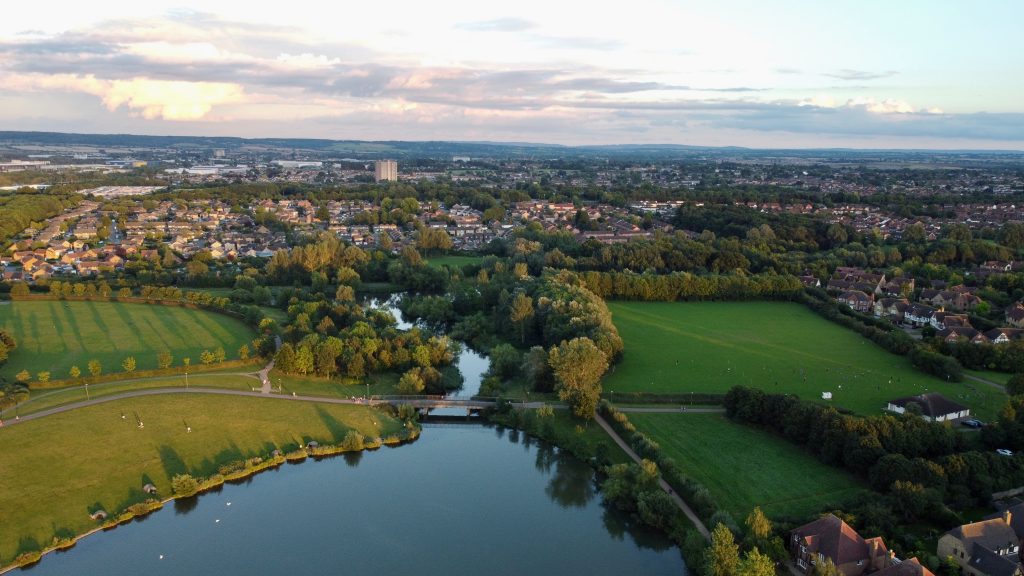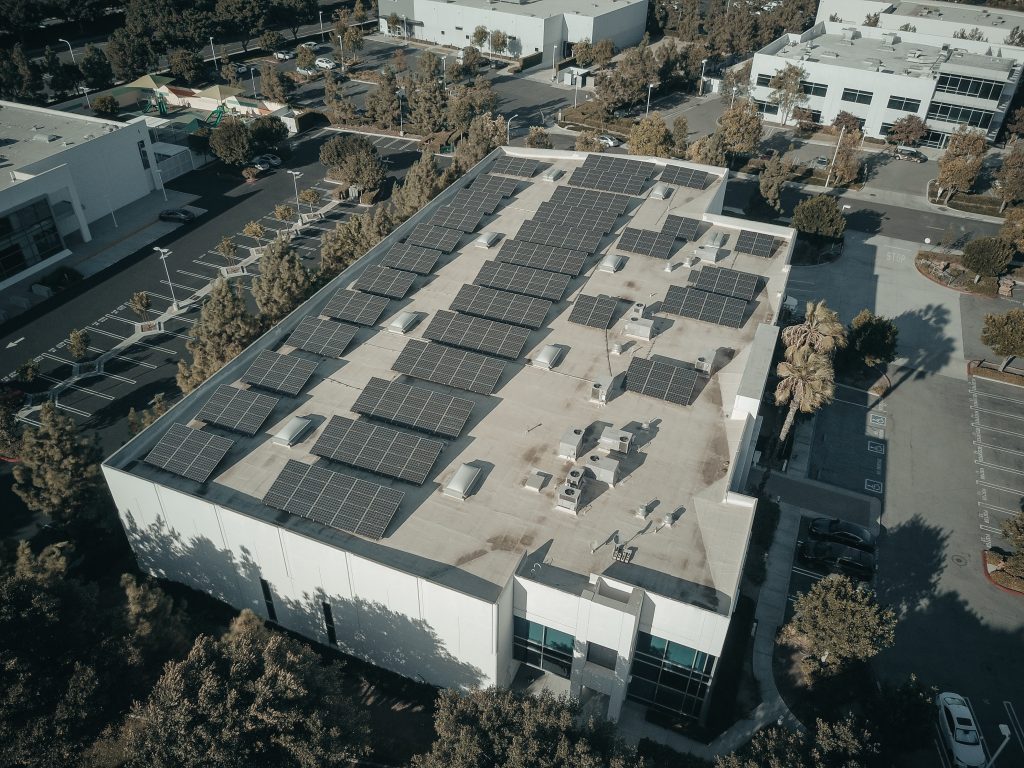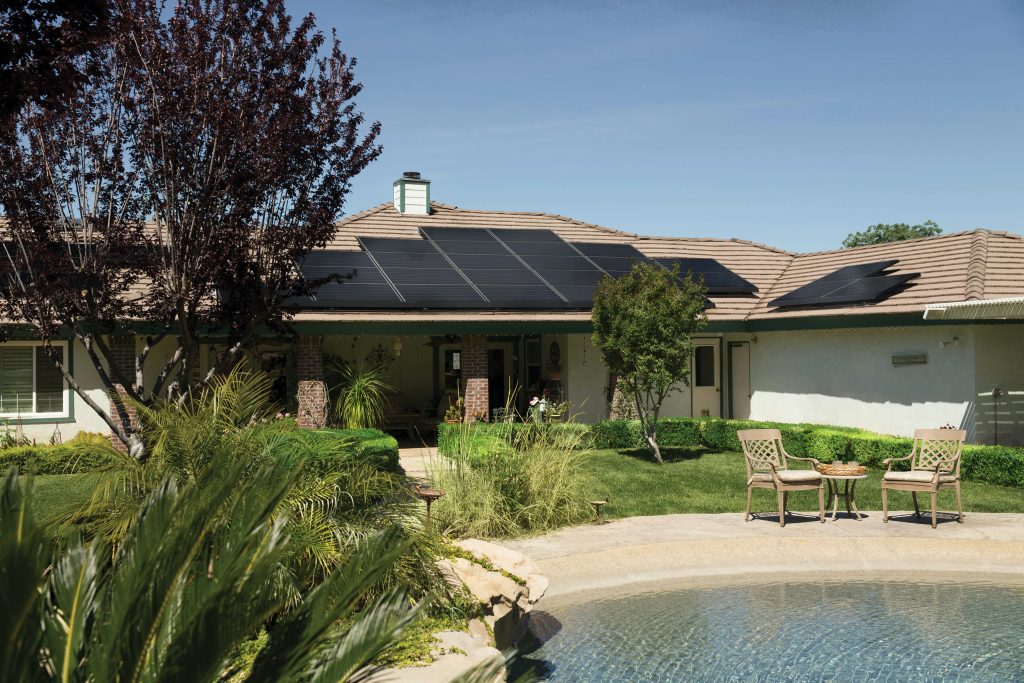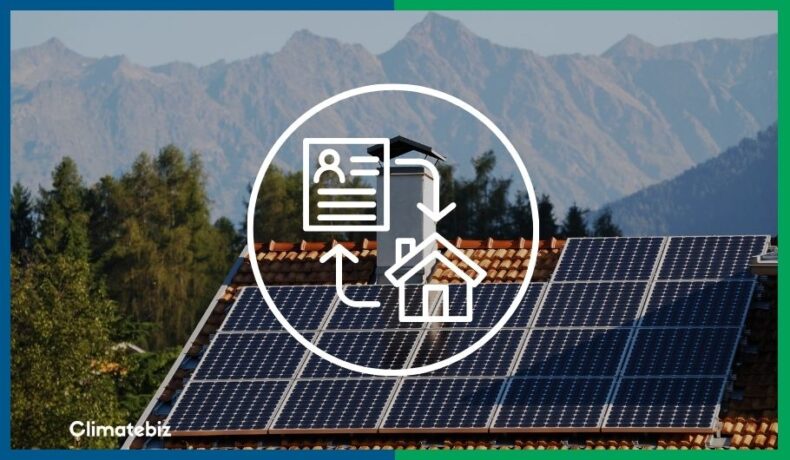“Is leasing solar panels in the UK worth the time and effort?”
Exploding energy prices, including an increase in the energy ceiling of 58%, are causing many homeowners and businesses in the UK a massive headache.
We know that investing in solar is worth it. After all, these green tech systems can offset energy costs in a more environmentally-friendly manner.
But what if you were to lease a PV system instead of purchasing one, particularly as a UK resident?
Well, it appears as though the leasing of solar panels is becoming an increasingly attractive alternative for homeowners and businesses throughout the UK. Though that’s not to say this method of using solar doesn’t come with its downsides.
So, how does leasing a solar system work? What are the advantages and disadvantages?
Let’s find out.
Table of Contents
How Does A Solar Panel Lease Work In The UK?

Source: Ethan Wilkinson on Unsplash
You might be familiar with the concept of leasing — exchanging money to use an asset. You can lease an apartment, a garage, or a piece of equipment.
Solar leases are similar to car leases; they are a form of third-party ownership. Under a solar lease, the third party installs solar panels on your property and then sells you the electricity produced.
Your monthly lease payment is based on the estimated annual production of your solar system. Ideally, the annual lease payment in Year 1 of the lease agreement should match your energy savings in Year 1.
The lease agreement will have a fixed term length, typically 20 to 25 years. At the end of the fixed term, you can either:
- purchase the system at the market value;
- remove the system;
- renew your contract and continue the monthly payments.
In addition, many lease agreements contain an annual “escalator.” An escalator increases your monthly payment by a pre-agreed rate over your term length (typically 1 to 5% per year).
If you don’t own the land or the building, establishing a rooftop lease agreement with the landlord means you can use the roof for a solar installation. Similarly, you can lease land adjacent to the property if required.
You should ensure that the leasing company is a member of the Renewable Energy Consumer Code, which holds members to service delivery standards. It also offers redress processes for consumers who wish to complain about a member.

Leasing Solar Panels For Your Business
In addition to the above points, businesses considering onsite solar panels should:
- Carry out due diligence on any proposed system to ensure it’s appropriate for your energy needs.
- Only employ a solar company with a proven track record in installations of the scale under consideration. The solar company should have MCS accreditation.
- Ensure that there is a credible monitoring and maintenance system ready to go. If there is none, possible faults could go undetected, reducing system performance.
- Consider the accounting implications of leasing versus buying.
Is Leasing Solar Panels In The UK Worth It?
The short answer: it depends. We’ll look at a working example involving both the savings and cost of leasing to determine this.
Leasing Solar Panels Worked Example: Savings
The average house in the UK uses about 4,000 kWh of energy per year, with an annual average electricity cost of about £1969 per year. This amount combines a standing charge (pence per day) and the energy rate cost (pence per kWh).
The energy rate cost is applicable since this is the cost that the solar system will displace.; this is around 30 pence per kWh.
Typically, a household uses about 50% of the output of a domestic solar system. The solar system exports the remaining 50% onto the grid. A 3.5kWp would generate about 3,000 kWh per year.
Therefore, the 3.5 kWp system would reduce your annual energy cost by about 1,500kWh per year. At 30 pence per kWh, this saves £450 per year.
As a result, over a 20-year system lifetime, this total saving would amount to around £9,000 (ignoring growth in energy prices).

Leasing Solar Panels Worked Example: Costs
Small scale systems in the UK cost about £1792/kWp to install, according to BEIS numbers. This means a 3.5 kWp system costs about £6,272. If you bought the 3.5 kWp upfront, it would take 13.9 years to pay off.
Assuming that the solar company arranges the lease payments to remain cash flow-neutral, you would pay £450 per year in lease payments.
As a result, the cost to you over the 20-year agreement would be 20 x £450 = £9,000.
The opportunity cost of purchasing is more evident when you consider what you could do with your saved capital. In Year 1, you would have spent £450 and saved £5,822 (because £6,272 – £450 = £5,822).
Example
Imagine you took this £5,822 and invested it in a Stocks and Shares ISA, at an average annual return of 8%. By Year 20, your ISA would be worth £27,136. Therefore, the net benefit is £18,136, well above the £9,000 lease costs.
Summing Up
The above is a working example, but you can use our in-house calculator to determine what your house or business needs. In addition, the Energy Trust UK has a solar financial calculator designed to forecast savings from a UK-based solar system.
So much for the financial benefits of leasing panels. Leasing panels may complicate your use of the property. The following sections outline this in further detail.
What Are The Cons Of Leasing Solar Panels In The UK?
The following are disadvantages of leasing solar panels:
- Savings are lower than if you had bought the panels with cash or a loan. This is because you are paying for the solar company’s finance and asset management costs.
- Risk of existing roof damage to the roof: at the height of the solar FIT scheme, some unscrupulous solar companies did not take due care when installing the solar panels. You should have the roof surveyed to check if there is any such damage.
- Complicates selling your home: the solar company may have to grant permission for you to sell your house. This can add cost and delay selling or buying a house.
- You may not be able to develop your house: the lease agreement may prohibit you from developing your property.
In addition, several risks also exist, specifically for businesses:
- Reduced energy usage: if your business’ energy usage reduces, the savings generated by the solar system will not be as high as expected. Therefore, you need to assess current and projected energy use. For example, more energy-efficient equipment can lower your business energy use.
- Balance sheet impact: leased solar panels will reduce your company’s running costs, but they will not appear as an asset on your balance sheet. Your accountant needs to consider the impact of this on your business.
What Are The Pros Of Leasing Solar Panels In The UK?
There are five main advantages to leasing solar panels:
- Save money on electricity: the system will reduce how much energy you use from the grid when switched on.
- Low or no upfront costs: you don’t have to buy the panels and other equipment upfront.
- No maintenance responsibilities: the solar company will monitor the system and arrange for any necessary maintenance and insurance.
- Improved EPC rating: a solar system should increase your home’s EPC (Energy Performance Certificate). A high EPC can make your home easier to sell.
- Lower carbon footprint impact: fossil fuels supply part of the UK’s electricity. Installing solar helps reduce the country’s use of coal and gas. Annually, a solar system saves 1 tonne per year, the carbon equivalent to 2 people flying return to Ibiza.
Buying A House With Leased Solar Panels
It is possible to buy a house with leased solar panels, although more complex than buying a home without them.

You should take the following points into account:
- Some mortgage lenders take issue with a solar company having tenant rights over part of the roof.
- However, most mortgage lenders will be satisfied if the following conditions are met:
- The installing company has MCS accreditation.
- The installation is approved and insured.
- The panels can be removed without penalties for missed FiT payments.
- They are satisfied with the terms of the lease relating to repossession.
- If the solar company has contracted the management of the panels to a third party, that third party may charge a fee when the house is sold.
- The lease agreement may require that the homeowner request consent from the solar company to extend the house or even to sell it!
- The homeowner may be required to pay compensation for lost revenue if the solar panels are temporarily removed for roof repairs.
- Many UK solar companies have ceased trading, making it difficult to determine which company owns the panels.
- You may be able to buy out the lease agreement.
In the event that you can’t identify which company installed the solar system, there is a way to track them down. Ofgem has a register of all solar installations accredited and registered with the FIT scheme. So long as you can prove you are the property owner, panel ownership can be determined.
How To Get Out Of A Solar Panel Lease In The UK?
To end a solar panel lease in the UK, you must make some form of payment to the solar company. The lease agreement will outline the conditions and formula for wrapping up the contract, but there are three broad options:
- Buyout
- Market Value Payment
- Transfer to New Owner
Option 1: Buyout
Under a buyout, you pay the outstanding balance on the lease agreement. You can usually choose whether to have the solar panels removed or left on the house. Typically, a buyout can occur after Year 5 of the lease, all this depends on the specific contract.
Option 2: Market Value Payment
Alternatively, the lease agreement may require that an expert appraiser determine the fair market value of the system. The value will depend on current market conditions since the appraiser’s judgment decides this. You will not receive a guaranteed value; instead, you’ll receive a value that the appraiser decides is fair.
Option 3: Transfer To New Owner
Finally, you can transfer the lease to the new homeowner. This will only apply if you are looking to sell your house. The transfer will incur some costs and delays due to the paperwork required to make the transfer. Some buyers may be unwilling to accept this, but you can always reduce the house’s selling price by the cost of the transfer and complete the sale.
Final Thoughts
In conclusion, you don’t own your solar system with leased solar panels, but you do benefit from the electricity it generates. Depending on your energy use, you could shave 20 to 30% off your electricity bill.
A leased solar system can make selling your home more difficult. Therefore, you should consider leasing solar panels in the UK only if you:
- intend to own the property for the foreseeable future; and,
- don’t plan to develop or extend the property.

